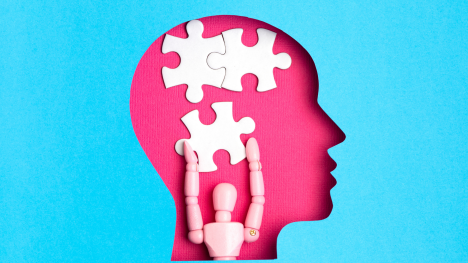"The key to a healthy life is to have a healthy mind." This proverb isn't just a phrase, but a lesson for life. Keeping your mind healthy ensures high levels of energy, ambition, and strength to face the disease.

Keeping your mind healthy isn't a difficult chore at all. All you have to do is exercise.
Yes! You read it right!
What is commonly believed to strengthen the muscles and bones is pretty beneficial for your brain health. Today we shall discuss the importance of exercise in mental health, so jog along!
Impact of exercise on mental health and well-being
Your mental health is greatly affected by levels of stress in the body. A stress-free mind is a healthy mind. Anxiety entails unwanted consequences such as a depressed mood.
Thus, carrying out physical activity can address multiple aspects of the mind to improve your psychological health. The most evident impact of exercise on mental health and well-being are as follows:
Reduces stress and anxiety
The safety measures of self-isolation and social distancing during COVID-19 pandemic have had a toll on our thinking capabilities.

Studies have proven that exercise is an effective way of climbing out of this abyss of misery and depression. Exercise and physical activity have shown amazing results in keeping anxiety at bay amidst the COVID outbreak.
Another highly authentic study concludes that exercise triggers your body's endogenous system to increase resilience against anxiety and stress.
Elevates mood
The nosediving of stress (with exercise) instills a feeling of calmness and tranquility. This, in turn, leads to the betterment of mood.
The positive effect of exercise on mood improvement is unlike any. There is strong evidence that even an acute session of exercise causes changes in neurochemicals (chemicals in the brain) and neurotransmitters (nerve impulse/message carriers in the brain). The ultimate result of this change is happiness and elevation of mood.
Enhances cognition and memory
Young fellows are found struggling with memorizing lectures and being able to reproduce them in an exam Astonishingly, exercise can be your helping hand here too. Scientists are unable to find the exact underlying cause as to how exercise proves cognition and memory.

However, a study suggests that exercising regularly can lead to increases in brain-derived neurotrophic factor (BDNF) i.e. a protein in the brain. This rise is believed to improve cognition and memory.
Exercise is like an umbrella that covers multiple health aspects. Carrying out physical activity daily is linked to the augmentation of spatial learning, another study suggests.
Thus, it is recommended that the young spend some time burning muscle to stay mentally and physically attractive.
Prevents mental disorders
Mental health disorders are common in senile groups. However, adopting a healthy lifestyle in your teens can go a long way. Those who perform regular exercise have shown to be more resistant towards developing mental disorders.
This very practice is a source of comfort and relief for those suffering from mental disorders too. Be it clinical depression, bipolar disease, or anxiety disorder, exercise is an effective treatment strategy for all.
Research suggests that exercise can act as an efficacious treatment strategy for managing mental disorders in athletes. Sports psychiatry now focuses on curing mental disorders with exercise.
Conclusion
Regular exercise is an extremely potent way of maintaining ideal mental health. A little hard work on your body can efficiently flush out anxiety and stress from your body, thereby, keeping your mood elevated and body serene. It keeps mental disorders at bay and also allows mental health patients to achieve alleviation of symptoms.
Find a psychiatrist near you today, and get started taking care of your mental health.
References
Klaperski, Sandra, et al. "Optimizing mental health benefits of exercise: The influence of the exercise environment on acute stress levels and wellbeing." Mental Health & Prevention 15 (2019): 200173
Coyle, Conor, Hanya Ghazi, and Ioannis Georgiou. "The mental health and well-being benefits of exercise during the COVID-19 pandemic: a cross-sectional study of medical students and newly qualified doctors in the UK." Irish Journal of Medical Science (1971-) 190.3 (2021): 925-926.
Esch, Tobias, and George B. Stefano. "Endogenous reward mechanisms and their importance in stress reduction, exercise, and the brain." Archives of medical science: AMS 6.3 (2010): 447.
Mortazavi, Seyede Salehe, et al. "Mental disorder prevention and physical activity in Iranian elderly." International Journal of Preventive Medicine 3.Suppl1 (2012): S64.
Ströhle, Andreas. "Sports psychiatry: mental health and mental disorders in athletes and exercise treatment of mental disorders." European archives of psychiatry and clinical neuroscience 269.5 (2019): 485-498.
Basso, Julia C., and Wendy A. Suzuki. "The effects of acute exercise on mood, cognition, neurophysiology, and neurochemical pathways: a review." Brain Plasticity 2.2 (2017): 127-152.
Berchtold, Nicole C., Nicholas Castello, and Carl W. Cotman. "Exercise and time-dependent benefits to learning and memory." Neuroscience 167.3 (2010): 588-597.



